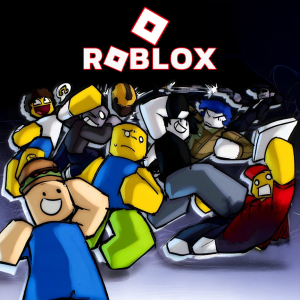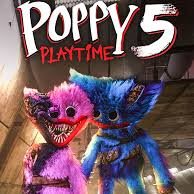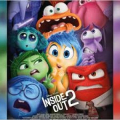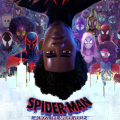Bluey
A Vignette of Playful Perfection
In an era where children's television often oscillates between high-energy antics and educational mandates, "Bluey" emerges as a standout anomaly. 'Bluey', an Australian jewel emanating from Ludo Studio, invites audiences, young and old, into the everyday enchantments of a Blue Heeler dog family. Where many shows falter in engaging cross-generational viewers, 'Bluey' succeeds with ease, crafting narratives that are as amusing to preschoolers as they are poignant to their guardians. Since 2018, 'Bluey' has danced its way into the hearts of a growing fanbase, piecing together slices of life that resound with authentic charm.
The essence of 'Bluey' is its divine simplicity: a six-year-old pup named Bluey navigates childhood's wonders and tribulations in seven-minute episodes that brim with depth despite their brevity. Bluey, alongside her sister Bingo, mother Chilli, and the especially lauded father Bandit, invites viewers to a world where imagination reigns supreme, and lessons are learned through the purity of play.
The Delight and Dilemma of Bluey's World
While 'Bluey' excels in storytelling, animation, and charm, it is not free from viewer critique. Bandit, the father figure, is a central topic of adoration and controversy. Bandit's portrayal as the flawless, always-engaged dad sets a gold standard for parenting that some may find uplifting, yet others view with unease. The watchful eyes of grown-ups digesting 'Bluey's' gentle episodes may occasionally wince at their own parenting when juxtaposed with Bandit's infinite patience and creativity.
A less emphasized shortcoming of 'Bluey' is its limited representation of diverse family structures and cultural backgrounds. Despite its Australian setting, there's a sense among fans that the show could do more to celebrate the rich tapestry of family and community life. The characters, while endearingly idiosyncratic, mostly navigate a homogenous social milieu. Furthermore, the perfection of the Heeler family dynamic may inadvertently invoke self-doubt in viewers who struggle to mirror this animated idyll in their domestic lives.
However, 'Bluey' should also be acclaimed for not succumbing to the pitfalls of overly didactic programming. The show's commitment to storytelling, first and foremost, without overly pedagogic approaches, allows natural discovery and learning. 'Bluey', in essence, chooses authenticity over idealized instruction and, in doing so, mirrors the often messy, beautifully unpredictable journey of childhood – albeit through a filter of heightened optimism and familial harmony. It triumphs in illustrating the rich inner lives of children, but one must wonder if the scale tips too far toward an impossible parenting paradigm.
Reflecting on Bluey's Resonance and Resolve
As 'Bluey' arrives on screens across the globe, it trails clouds of adulation and, perhaps, a thin vapor of self-doubt in the minds of watchful parents. Children are oblivious to the ripples they kick up in the adult world, entranced as they are by Bluey's authentic in-the-moment glee and unscripted adventures. Caregivers, meanwhile, are left to marvel at Bluey's unstudied wisdom, Bandit's gentle guidance, and the space where envy and admiration interlace.
Viewer impressions of 'Bluey' are a testament to its exceptional reach and impact. Parents find themselves unexpectedly riveted, heaping praise on its clever humor and emotional depth while internalizing the aspirational cues in Bandit's Super-Dad playbook. Some confess to feeling the bar of parenting prowess raised impossibly high as they watch Bluey and their family navigate life's twists with grace and laughter. It's this conflicted audience response that speaks volumes – 'Bluey' moves viewers to self-reflection even as it wins their hearts with its playful spirit.
But if 'Bluey' has a message for those who watch with a critical eye, it is this: imperfectly echo the show's spirit of joy, improvisation, and connection. 'Bluey' may evoke a wistful longing for Bandit's ceaseless gusto, but it also celebrates the unique quirks of each family dynamic. In its finest moments, 'Bluey' becomes a mirror to our deepest parental aspirations and serves as an inspiration to embrace each rich, fleeting moment of childhood – whatever form that may take.


















